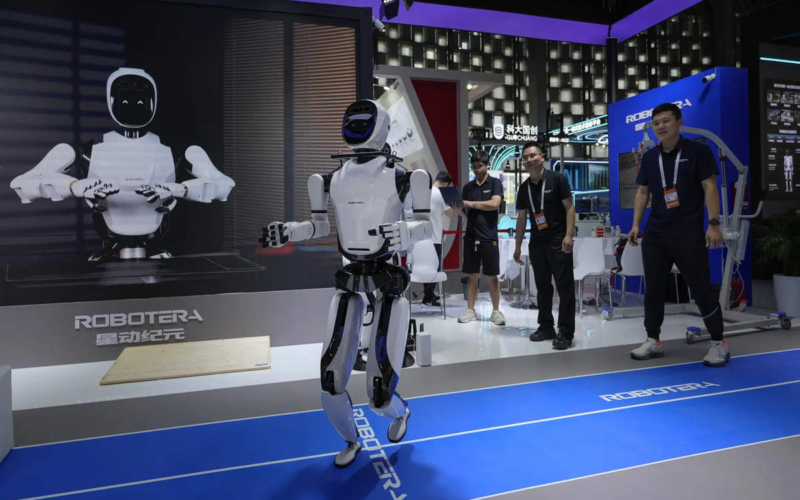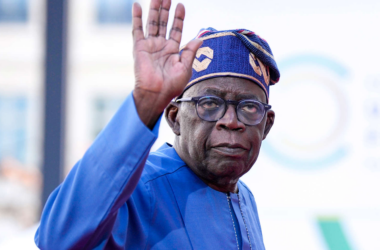At the World AI Conference in Shanghai this week, Chinese technology firms showcased their latest artificial intelligence advancements, demonstrating resilience and a commitment to innovation amid ongoing U.S. sanctions. The event, which brought together both established industry leaders and promising startups, highlighted over 150 AI-related products and solutions from predominantly Chinese companies, with limited participation from foreign firms such as Tesla and Qualcomm.
The conference served as a platform for several companies to launch new AI products and solutions. Notably, SenseTime, which has transitioned from its earlier focus on facial recognition to generative AI, unveiled its latest large language model, SenseNova 5.5. This model is positioned as a competitor to OpenAI’s GPT-4, especially in areas like mathematical reasoning. SenseTime’s pivot reflects the broader trend among Chinese AI firms to innovate within the constraints posed by limited access to advanced foreign technology.
Despite challenges posed by U.S. sanctions that restrict access to advanced AI chips, conference participants expressed confidence in the continued growth and leadership of China’s AI sector. Zhang Ping’an, the executive responsible for Huawei’s cloud computing unit, emphasized the need to shift the narrative away from reliance on the most advanced AI chips.
“Believing that the lack of the most advanced AI chips will impede China’s leadership in AI is a viewpoint we need to abandon,” Zhang stated, advocating for increased innovation in cloud computing to mitigate hardware limitations.
Similarly, Liu Qingfeng, chairman of Iflytek, another firm impacted by U.S. sanctions, highlighted the progress of Chinese-developed large language models (LLMs). According to Liu, these models are on par with international standards, demonstrating that domestic innovation can bridge the gap in technological capabilities. He stressed the importance of China having its own independently developed and controlled LLMs, capable of benchmarking against global leaders.
Robin Li, CEO of Baidu, urged the industry to move beyond the exclusive focus on developing large foundational models. He argued that without practical applications, these models have limited value. Li’s comments reflect a broader sentiment at the conference, advocating for a balanced approach that includes both the development of foundational AI technologies and their practical deployment across various sectors.
The event featured a diverse array of AI technologies, from generative AI models to innovations in cloud computing and applications that leverage AI for real-world solutions. Chinese companies used the opportunity to not only showcase their latest advancements but also to articulate strategies for maintaining their momentum in AI development despite geopolitical and technological challenges.
The World AI Conference underscored the resilience and adaptability of Chinese AI firms in the face of U.S. sanctions. By focusing on innovation and strategic development, these companies are positioning themselves to continue leading in the global AI landscape, demonstrating that challenges can be transformed into opportunities for growth and advancement.








